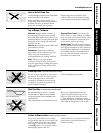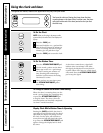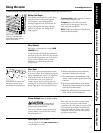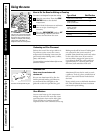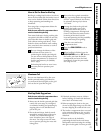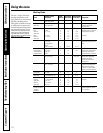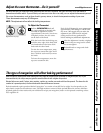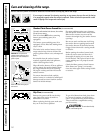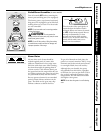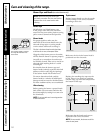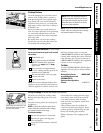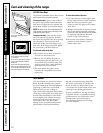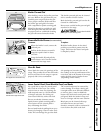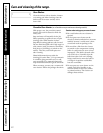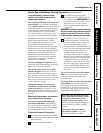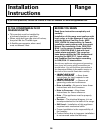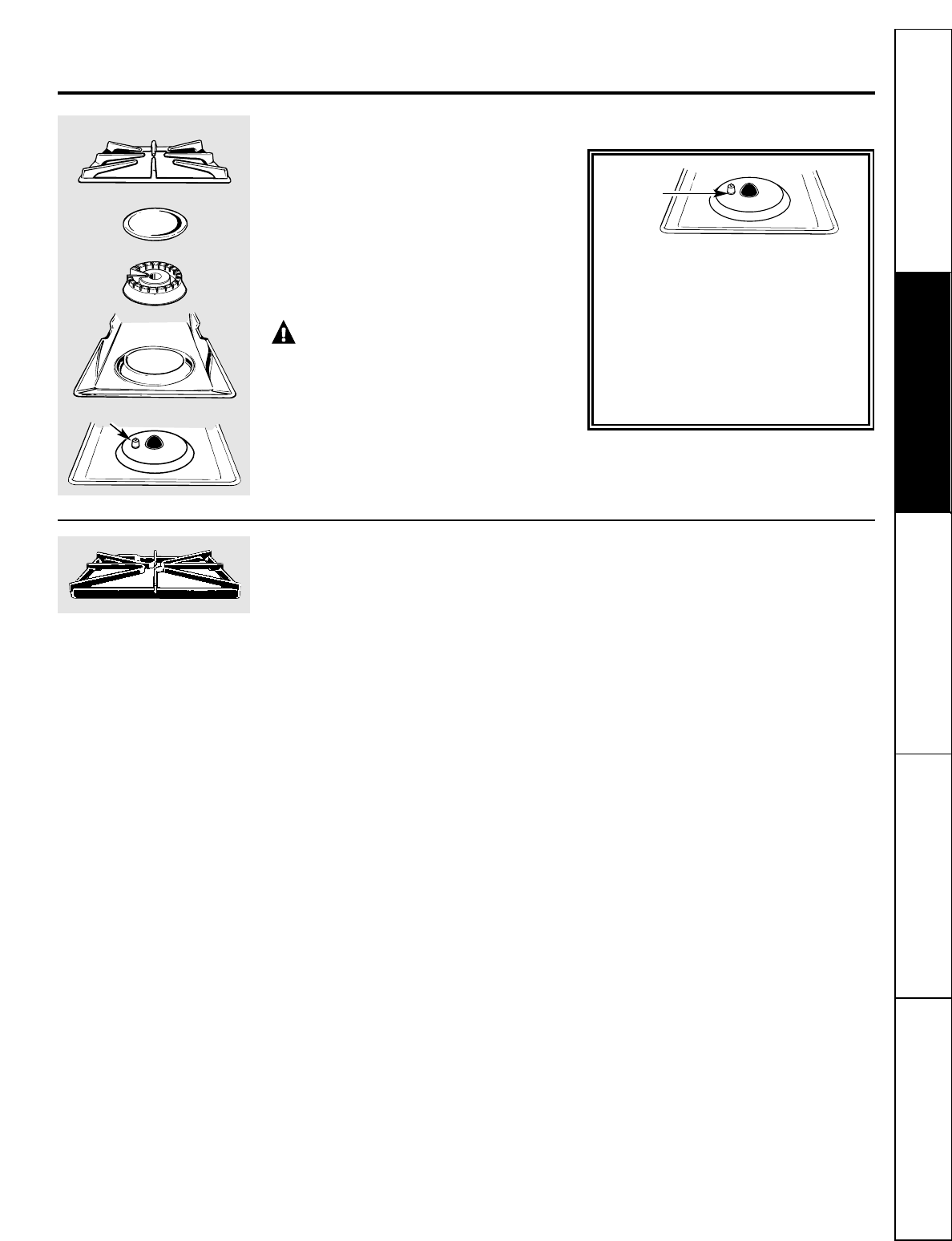
17
Consumer SupportOperating InstructionsSafety Instructions Installation Instructions Troubleshooting Tips
Grate
Burner head
Burner cap
Cooktop
Drip pan (on
some models)
Electrode
Burner Grates
Lift out when cool. Grates should be
washed regularly and, of course, after
spillovers. Wash them in hot, soapy water
and rinse with clean water. After cleaning,
dry them thoroughly by putting them in
a warm oven for a few minutes. Don’t put
the grates back on the range while they are
wet. When replacing the grates, be sure they
are positioned securely over the burners.
Do not operate a burner for an extended
period of time without cookware on the
grate. The finish on the grate may chip
without cookware to absorb the heat.
To get rid of burned-on food, place the
grates in a covered container. Add 1/4 cup
ammonia and let them soak several hours
or overnight. Wash, rinse well and dry.
Although they are durable, the grates
will gradually lose their shine, regardless
of the best care you can give them. This is
due to their continual exposure to high
temperatures. You will notice this sooner
with lighter color grates.
NOTE: Do not clean the grates in a self-cleaning
oven.
www.GEAppliances.com
Sealed Burner Assemblies (on some models)
Turn all controls OFF before removing the
burner parts and drip pans (if so equipped).
The burner grates, caps, burner heads and
drip pans (if so equipped) can be lifted off,
making them easy to clean. The electrodes
are not removable.
NOTE: Do not use steel wool or scouring powders
to clean the burners.
CAUTION: Do not operate the
cooktop without all burner parts, drip pans (on some
models) and grates in place.
NOTE: Do not lift the cooktop. Lifting the cooktop
on sealed burner models can lead to damage and
improper operation of the range.
The electrode of the spark igniter is
exposed when the burner head is
removed. When one burner is turned
to LITE, all the burners spark. Do not
attempt to disassemble or clean
around any burner while another
burner is on. An electric shock may
result, which could cause you to
knock over hot cookware.
Electrode



